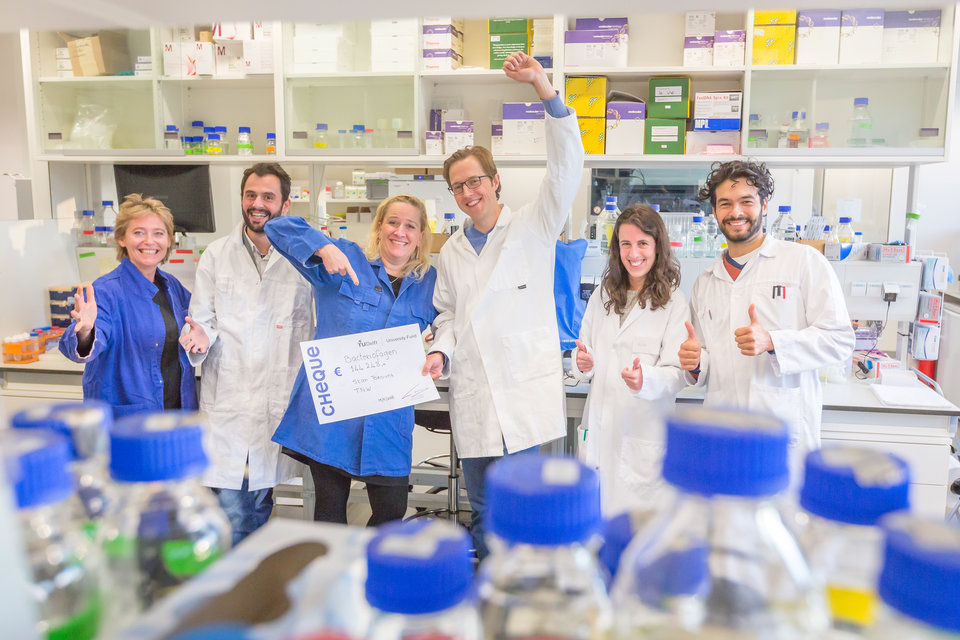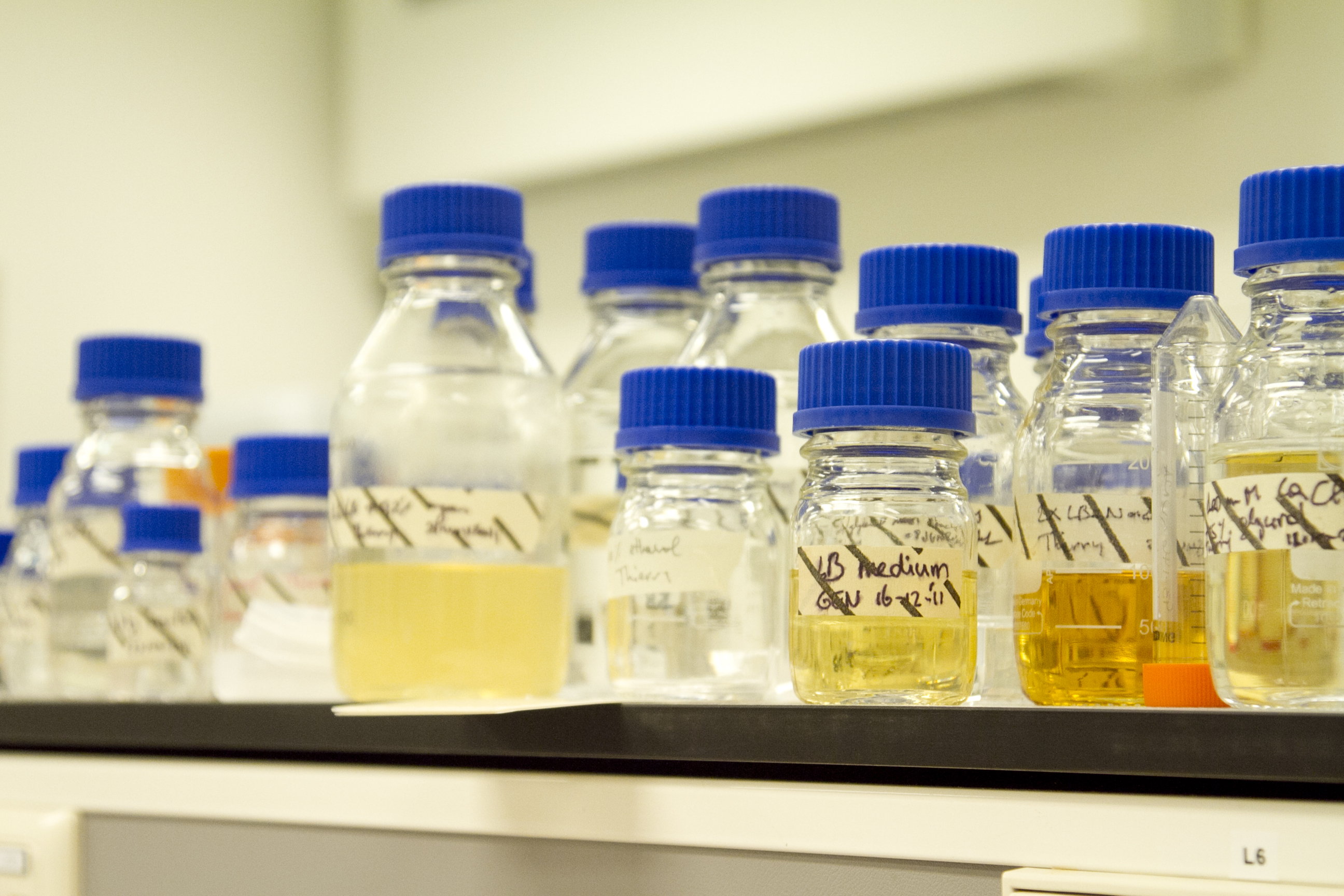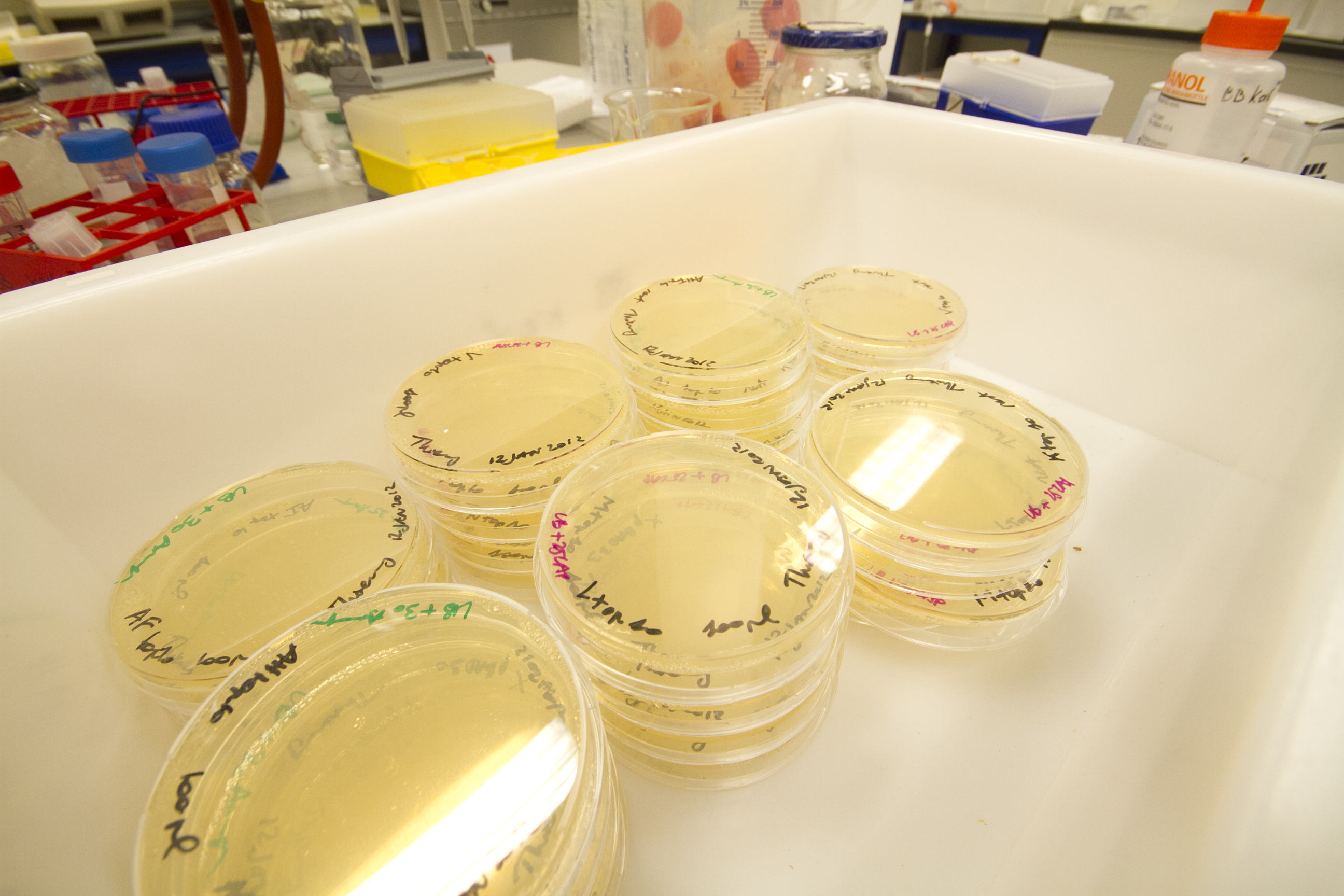Bacteriophages
Possible alternative to antibiotics?
What is invisible and will kill millions of people in thirty years' time? Answer: bacteria. Years of excessive use of antibiotics have enabled certain bacteria to evolve in a way that has become impossible to treat. A small group of researchers at TU Delft is working hard to find a solution.
Dr. Stan Brouns, working at the Faculty of Applied Sciences, is leading research aimed at developing a possible alternative for antibiotics: bacteriophages, the natural enemies of bacteria. Bacteriophages are tiny viruses that infect bacteria, and then use the bacterial cell as a factory to multiply themselves.
Miracle drug
Are phages a miracle drug? Could this be the solution to our problems with antibiotic resistance? "It is not that simple," says Brouns. "But phages do offer a lot of potential and are an alternative that we should seriously investigate. At the moment, the biggest problem is the lack of clinical studies according to strict Western standards. As a result, there is still much unknown about the effect of phages on the human body and that’s why a treatment with phages is not yet allowed in the Netherlands."
Roll up the sleeves
The pharmaceutical industry is showing limited interest at the moment. Unfortunately, phages are tricky to incorporate into a business case. After all, how can you apply for a patent for something that keeps changing every day? Brouns sees the great potential of treatment with bacteriophages and has therefore decided to roll up his own sleeves.
"I want to create the possibility to help patients in the Netherlands with phages, when antibiotics have stopped working. That’s why, in addition to the fundamental phage research in Delft, we are also working on setting up a foundation in the Netherlands that harbors a phage library, and I am working hard to put phage therapy on the map.”
With your support, the research on bacteriophages can be accelerated and a phage library can become reality. Join us and help with a donation.





